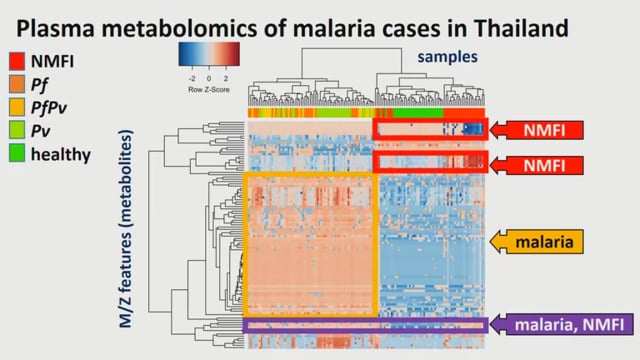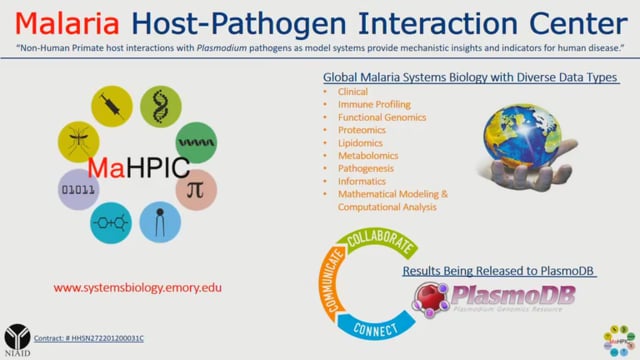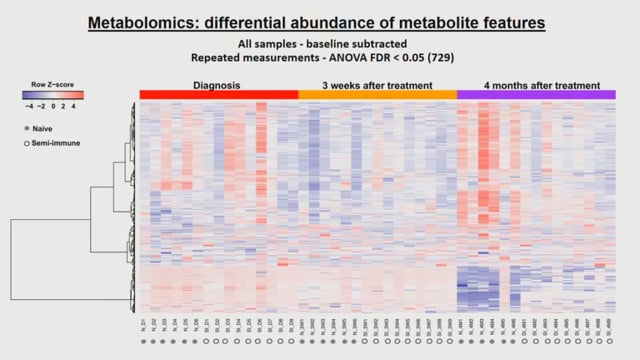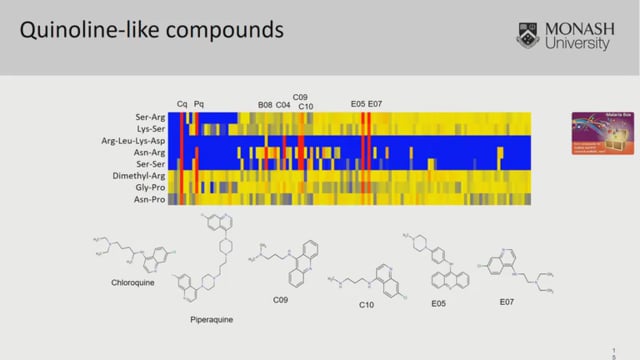ASTMH 2016, Regina Joice: “Metabolic profiles of humans and non-human primates during infection with Plasmodium species”
Collaborator(s): Emory University, United States
Published: 14/11/2016
In collaboration with ASTMH, Image Audiovisuals, and session presenters, MESA brings you this webcast from the 65th ASTMH annual meeting in Atlanta, November 2016.
Title: “Metabolic profiles of humans and non-human primates during infection with Plasmodium species”
Speaker: Regina Joice, Emory Vaccine Center, Emory University, USA
Session information: Symposium 35: “Malaria Metabolomics, Data Integration Challenges and Progress”
Monday, 14 November, 1:45 – 3:30pm, Marriott – Marquis D
Abstract:
Metabolomics, the high-throughput profiling of small molecules, has emerged in recent years as a powerful tool for identifying biochemical signatures that are associated with specific diseases and physiologic states. Metabolomics is already being used to address critical questions in malaria. Areas under investigation include understanding the dramatic metabolic changes that occur during Plasmodium parasite development at various stages of the life cycle, the effect of antimalarial drugs on parasite metabolism, and within-host metabolic dynamics. With recent advances in analytical technology and informatics, hundreds of metabolites involved in the host-parasite interaction can be profiled in a range of sample types (e.g. parasites, culture media, host RBC, host plasma, urine, etc.) which can be correlated with other parameters during infection such as cellular, genetic, proteomic and immunologic changes. Such data can provide rich information on the complex interplay between host and parasite, and can lead to an understanding of critical areas for intervention. This symposium will begin with an overview of the state of the field of malaria metabolism and metabolic changes associated with the host-parasite interaction during the malaria infection. It will then feature research highlights from in vitro studies, in vivo experimental model infections, and human cohort studies. The featured talks will address how metabolomics and proteomics can be combined to understand the mechanisms of anti-malarial drug action and resistance. The session will also feature results from plasma metabolome profiling of humans infected with malaria, as well as the dynamic of plasma metabolites across longitudinal infections of non-human primates. Finally, the symposium will feature the results of multi-‘omic data analyses from longitudinal malaria infection studies, and a discussion of how data integration can be used to gain a clearer understanding of the host-parasite system.
THEMES: Basic Science



